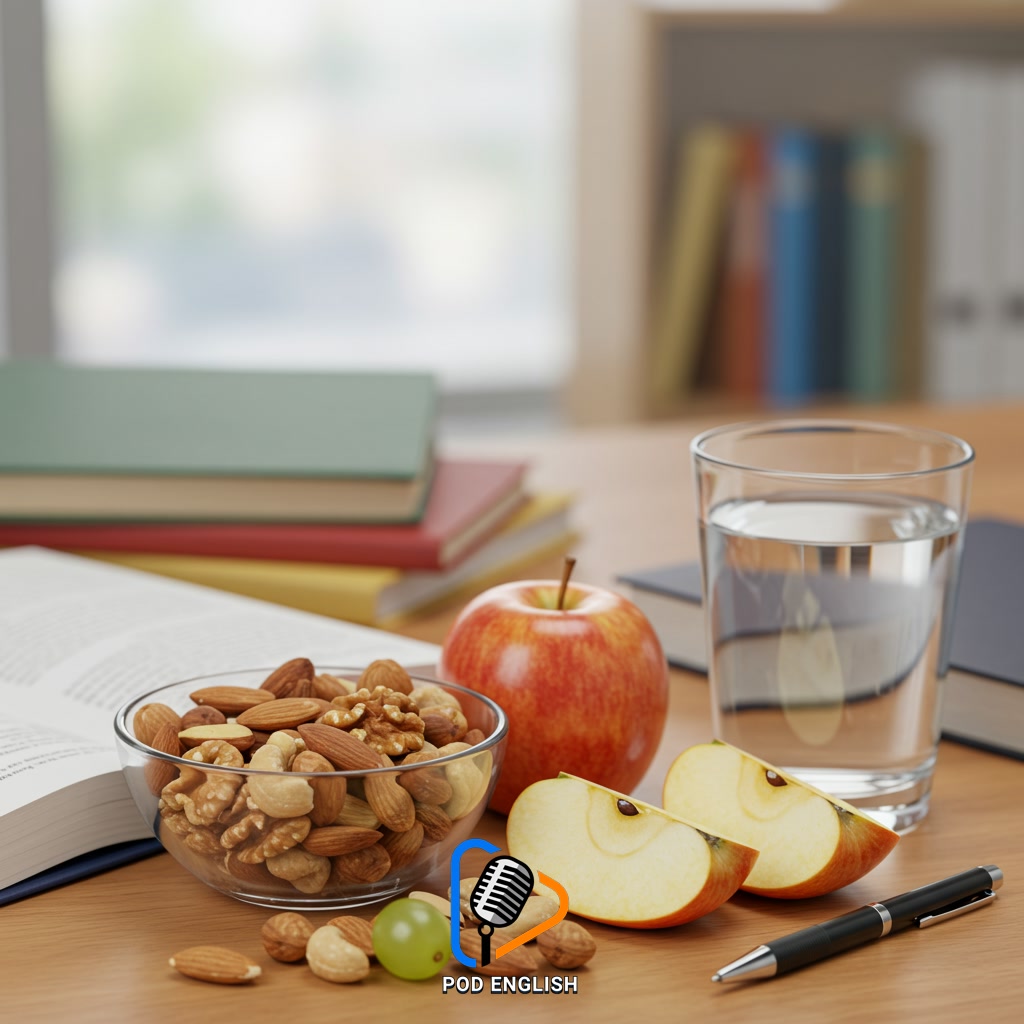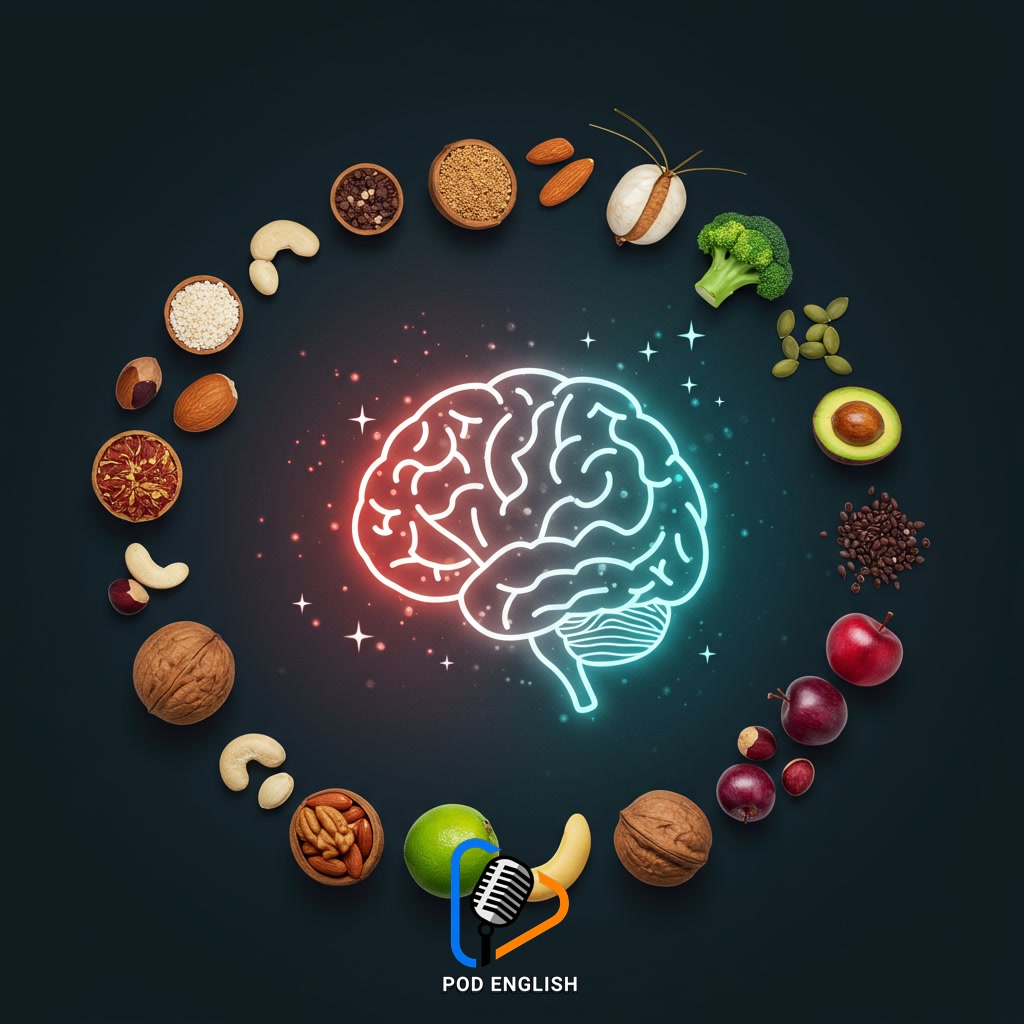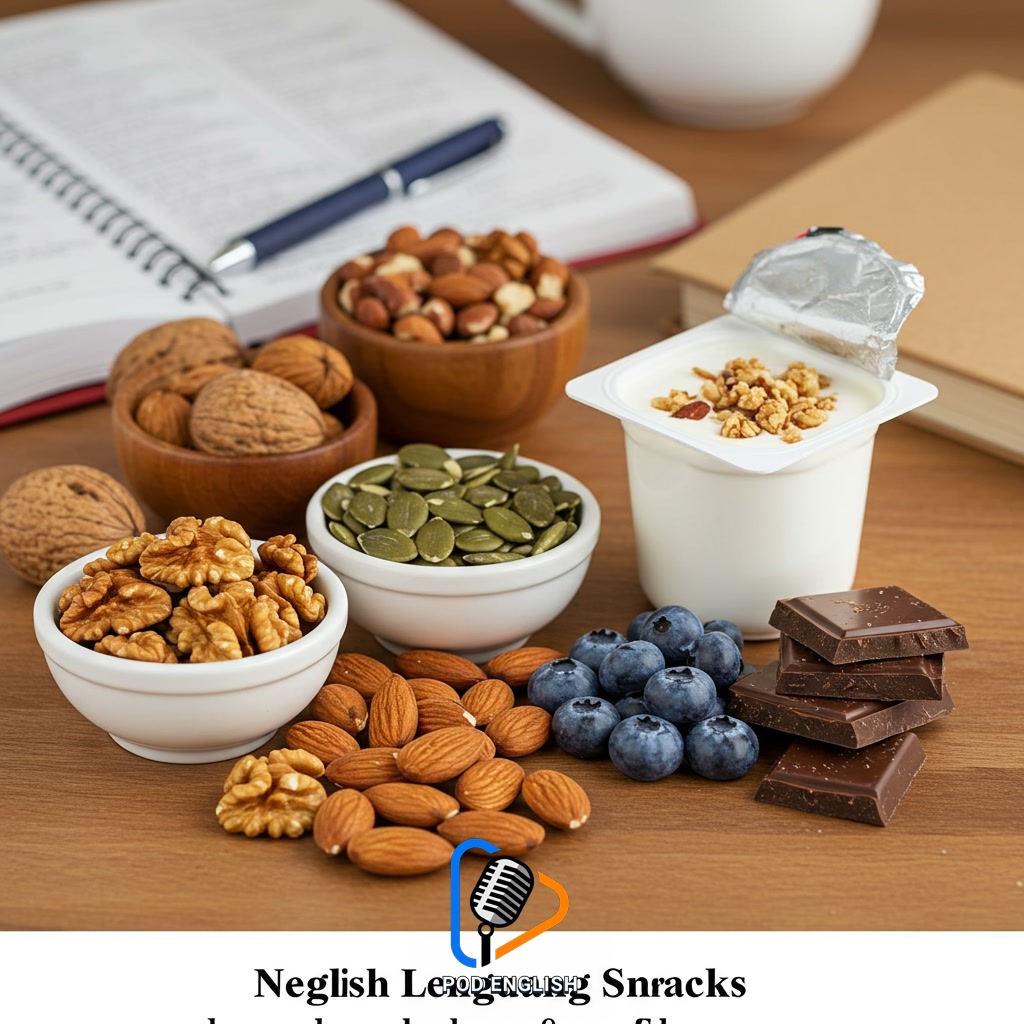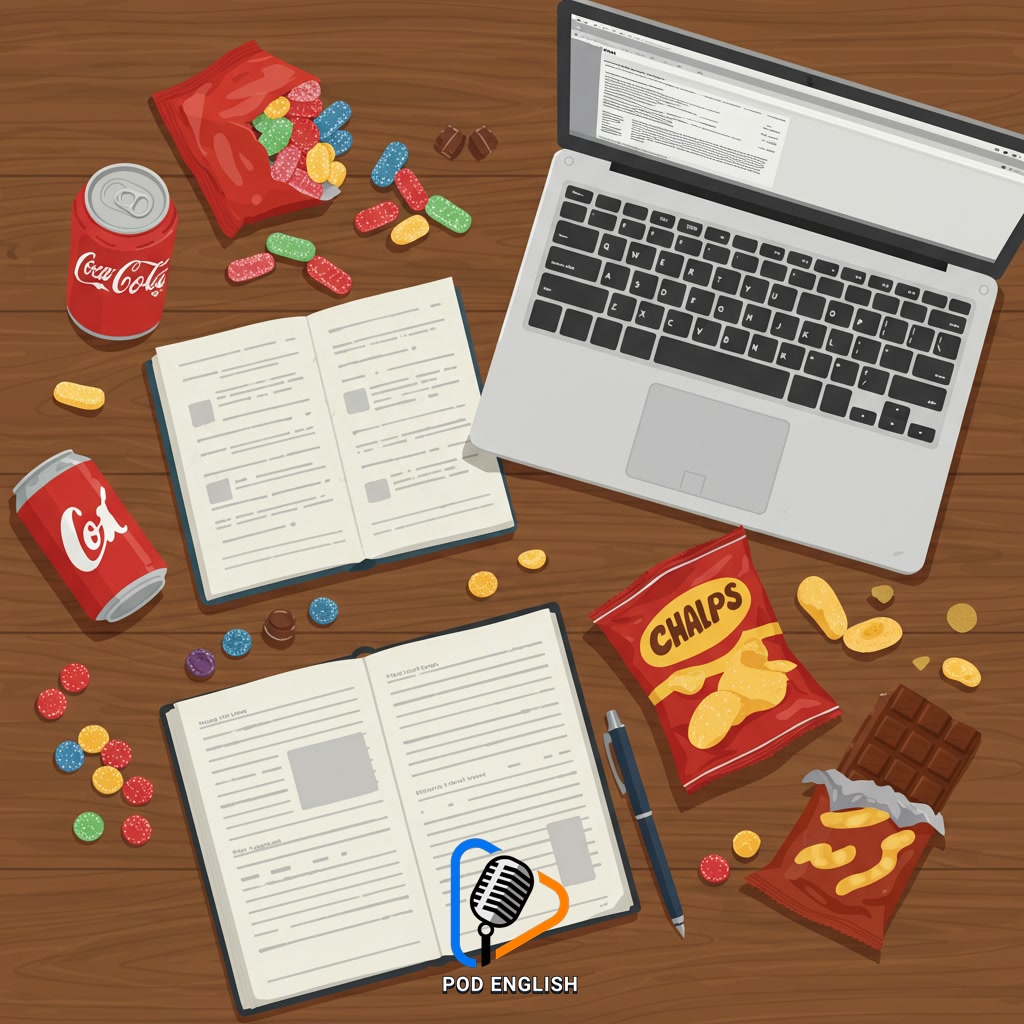Learn English
Boost Focus: Top Snacks for English Learners

Effective English acquisition often requires sustained focus. This content identifies top snacks specifically beneficial for English learners aiming to improve concentration during their study sessions. Discover how incorporating these recommended foods can help enhance your ability to stay attentive and absorb information more effectively.
Table of Contents
Section 1: The Link Between Diet and Learning Focus
The food you eat plays a surprisingly significant role in how well your brain functions, especially when you’re trying to concentrate on learning something new, like English. Think of your brain as a high-performance engine; it needs the right kind of fuel to run smoothly and efficiently. Eating nutrient-rich foods provides a steady supply of glucose and other essential nutrients that power your cognitive abilities. Conversely, sugary snacks or skipping meals can lead to energy crashes, making it difficult to stay focused, absorb information, and remember new vocabulary or grammar rules. Understanding this direct link between your diet and your ability to maintain focus is the crucial first step in using smart snacking to boost your English learning potential.

The Link Between Diet and Learning Focus
Section 2: Key Nutrients for Boosting Brain Function
Certain nutrients act as essential fuel for your brain, directly impacting your ability to focus and retain information. Omega-3 fatty acids, often found in oily fish, flaxseeds, and walnuts, are fundamental building blocks for brain cells and are vital for memory and concentration. Antioxidants, abundant in colourful fruits like berries and dark green vegetables, help protect your brain from stress and inflammation, keeping it sharp and responsive. B vitamins, present in leafy greens, eggs, and whole grains, are critical for energy metabolism, ensuring your brain has the power it needs for sustained attention. Minerals such as zinc and iron also play significant roles in cognitive function. By ensuring your diet includes these key nutrients, you create a better environment for your brain to thrive, making those English study sessions more productive and less tiring.

Section 3: Top Snack Recommendations for English Learners
Building on the importance of brain-boosting nutrients, let’s explore some practical snack ideas perfect for English learners. Walnuts, almonds, and pumpkin seeds are excellent choices, packed with healthy fats and vitamins that support cognitive function. Berries, especially blueberries, are renowned for their antioxidant properties and ability to improve memory and focus. A small piece of dark chocolate can provide a quick energy lift and contains compounds linked to enhanced mood and concentration. Plain yogurt with a sprinkle of granola or a few nuts offers protein and sustained energy. These simple snacks are easy to prepare and consume during short study breaks, helping maintain focus and energy levels throughout your English learning sessions without causing a sugar crash.

Top Snack Recommendations for English Learners
Section 4: Snacks to Avoid While Studying English
While certain snacks can boost your brain power, others can actually hinder your focus when you’re learning English. It’s best to steer clear of sugary drinks, excessive candy, and highly processed snacks like many chips or pastries. These often cause a quick sugar rush followed by a crash, leaving you feeling tired and less able to concentrate on grammar rules or new vocabulary. Heavy meals before studying can also make you feel sluggish and sleepy. Choosing light, nutrient-dense options instead, as discussed previously, helps maintain stable energy levels and keeps your mind sharp for effective English acquisition.

Snacks to Avoid While Studying English
Section 5: Tips for Mindful Snacking During Study Sessions
Beyond choosing the right snacks, how you snack is just as important for maintaining focus while learning English. Instead of mindlessly eating while distracted, try to practice mindful snacking. This means paying attention to your hunger cues before reaching for food and savoring each bite slowly. Avoid snacking directly in front of screens or while multitasking intensely, as this can prevent your brain from registering the food and lead to overconsumption or continued distraction. Keep portions small and pre-portioned if possible. By being present and intentional with your snack break, you allow your mind a brief, focused pause, preparing it better for returning to your English studies with renewed concentration.

Tips for Mindful Snacking During Study Sessions













